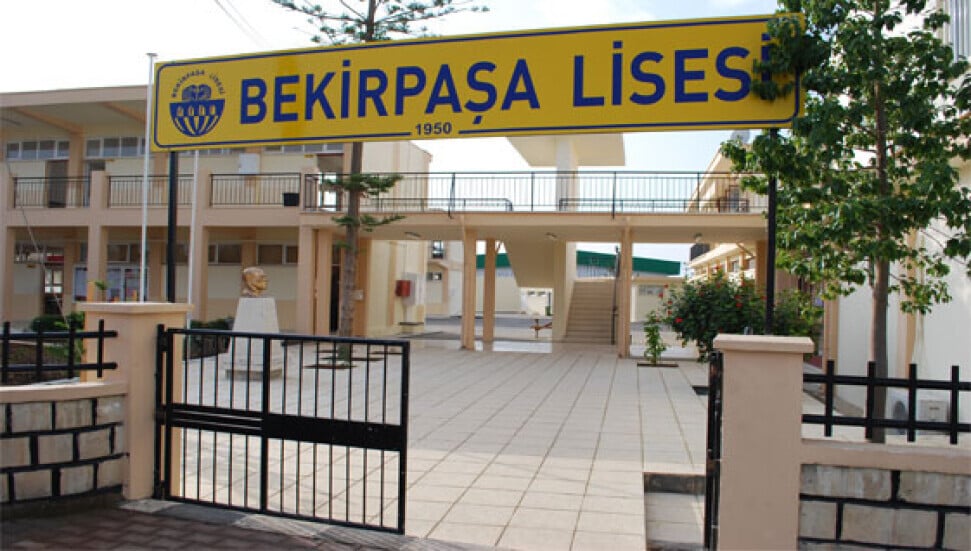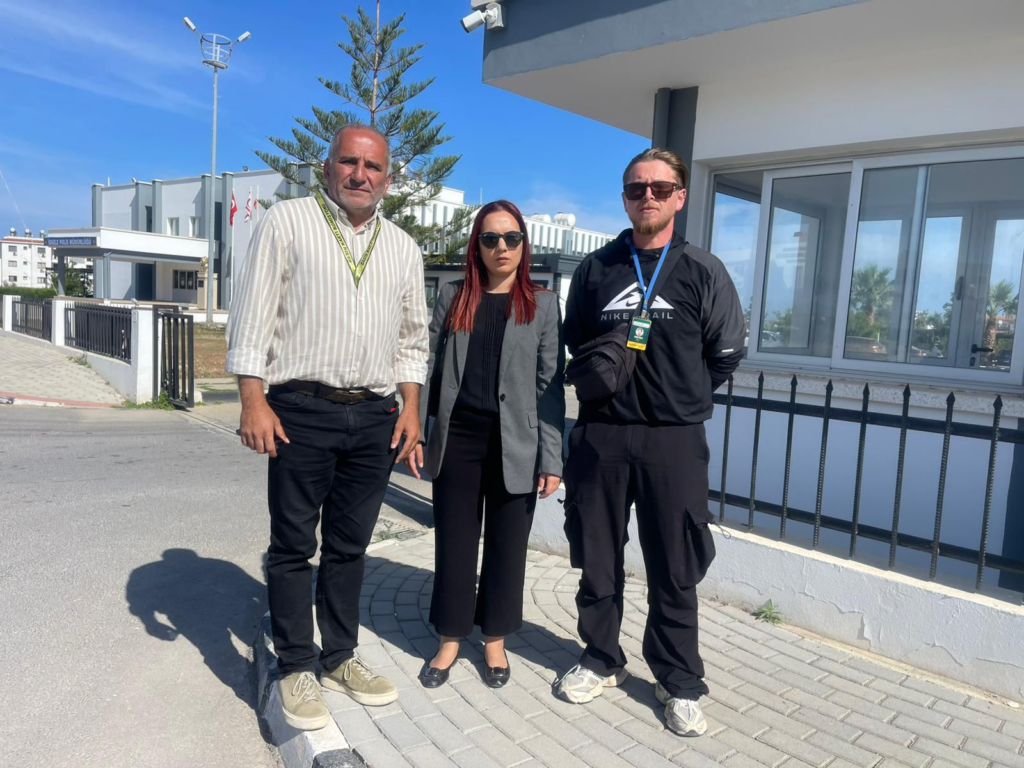Two journalists in the north were charged with trespassing after reporting on an incident in which teachers were locked out of a school amid souring relations between the ruling coalition and teachers over the former’s decision to legalise the wearing of hijabs at public schools.
The charges were revealed to the public by the north’s Press workers’ union (Basin-Sen)’s lawyer Cansu Nazli on Wednesday morning, with newspaper Ozgur Gazete’s Omer Ozok and website Kibris Gercek’s Kenan Dogu the two to be charged.
Nazli said she had been informed of the charges, but that the Turkish Cypriot police had told her she “cannot make a statement without permission”, and that if she did, legal action could be taken against her.
Later in the day, Dogu spoke to news website MyKibris to explain his side of the story.
“We went to Trikomo after receiving information that the doors of the Bekirpasha high school had been locked, preventing classes from going ahead. When we were there with our friends from the press and [Cyprus Turkish secondary education teachers’ trade union] Ktoeos to record the situation and inform the public, the headmaster called the police on us,” he said.
He added, “we could not understand how a schoolyard, which is a public area, was perceived as the entrance to a private property”.
After the police had been called, he said he and Ozok were summoned to Trikomo’s police station and informed that what they had done was a crime.

The Cyprus Turkish journalists’ union condemned the act, describing it as an “oppression against journalism”.
“It is unacceptable that our colleagues, who only wanted to report on an incident at the Bekirpasha high school …. were taken to the police and charged with trespassing,” the union said.
“Journalists must do journalism everywhere, whether that be a press conference or a school with locked classrooms. We believe that the attitude displayed by the school’s administration and by the police, who know that our colleagues will not damage property, is intended to intimidate journalists.
“Journalism is not a crime. Journalism is the art of informing the public under all circumstances.”
Ktoeos also took the journalists’ side, saying, “we stand with our journalists” and that “we will continue to fight for our independent, free, secular, and democratic future”.
“This attack on our friends who were trying to do their job is unacceptable. Journalism is not a crime. Freedom of thought and expression, freedom of the press, are within the scope of our fundamental rights and freedoms. We will not bow down … to the oppressive, fascist mentality which wants to eliminate these freedoms and cover up the truth,” the union said.
![Ktoeos' Selma Eylem and Tahir Gokcebel [Kibris Postasi]](https://cyprus-mail.com/wp-content/uploads/2025/05/gokcebel-and-eylem.jpg)
It also took aim at Turkey’s ruling AK Party and the country’s ambassador in the north Ali Murat Basceri.
“We would like to express once again to the AKP and its ambassador here, who are attacking our freedoms and democratic values, who are acting with the aim of doing what is happening [in Turkey] and trying to deceive our society with the help of the pro-government media … we will not give up on our fight for scientific, secular education, or for our secular society and its values.”
The school’s doors were locked on Tuesday this week and on Friday last week, with Ktoeos secretary-general Tahir Gokcebel explaining that teachers had been locked out of the school after the ‘education ministry’ had insisted that midterm examinations, which were supposed to go ahead in March, go ahead during the final week of term.
The exams had been cancelled in March when teachers refused to work after the ruling coalition legalised hijabs at schools, and a small number of children arrived at the Trikomo school wearing religious garments.
A further teachers’ strike notwithstanding, lessons had in general gone ahead thereafter with no children wearing head coverings allowed into the school.
However, Gokcebel said, with just days to go until the year’s final exams, the ‘ministry’ decided to produce a new programme for the midterm exams to take place the week before the final exams.
“No one wants these exams now, no parents signed up for this, and the children do not want it either. It is not right. We decided instead to teach lessons this week and prepare the children for the forthcoming final exams,” he said.
Despite this, he said, “the headteacher, on instructions from the ministry, of course, and in communication with the [Turkish] embassy, decided to lock all the doors to stop us from holding lessons, and said the doors would only open for exams”.
The incident came a month after teachers at the Bekirpasha high school had gone on a one-day strike, with Ktoeos leader Selma Eylem telling the Cyprus Mail at the time that the school’s headteacher has been “calling teachers to his office and pressuring them” over the matter.
Additionally, she said, a letter was sent by the ‘education ministry’ to the school announcing that an investigation would be launched into the teachers’ refusal to teach children who had arrived at school wearing religious garments after the ruling coalition legalised it.
![Thousands gather for the third time to protest against the legalisation of hijabs in public schools in the north [Tom Cleaver]](https://cyprus-mail.com/wp-content/uploads/2025/05/WhatsApp-Image-2025-05-02-at-21.03.04.jpeg)
The ruling coalition had initially legalised the wearing of hijabs in schools midway through March, but faced a fierce backlash from teachers, the majority of whom are staunchly secular, before withdrawing the law shortly thereafter.
Turkish Cypriots have in large numbers rejected the hijab law, taking to the streets of Nicosia in their thousands on three separate occasions since the law was enacted, with numerous smaller such protests having taken place in the meantime.
The most recent of those protests came at the end of a general strike across the north, while teachers have also taken the matter to court.
The matter has also escalated beyond Cyprus, with Turkish President Recep Tayyip Erdogan having made his own intervention during a visit to Cyprus earlier this month.
“If you try to mess with our girls’ headscarves in the Turkish Republic of Northern Cyprus, I am sorry, you will find us against you,” he had said.






Click here to change your cookie preferences